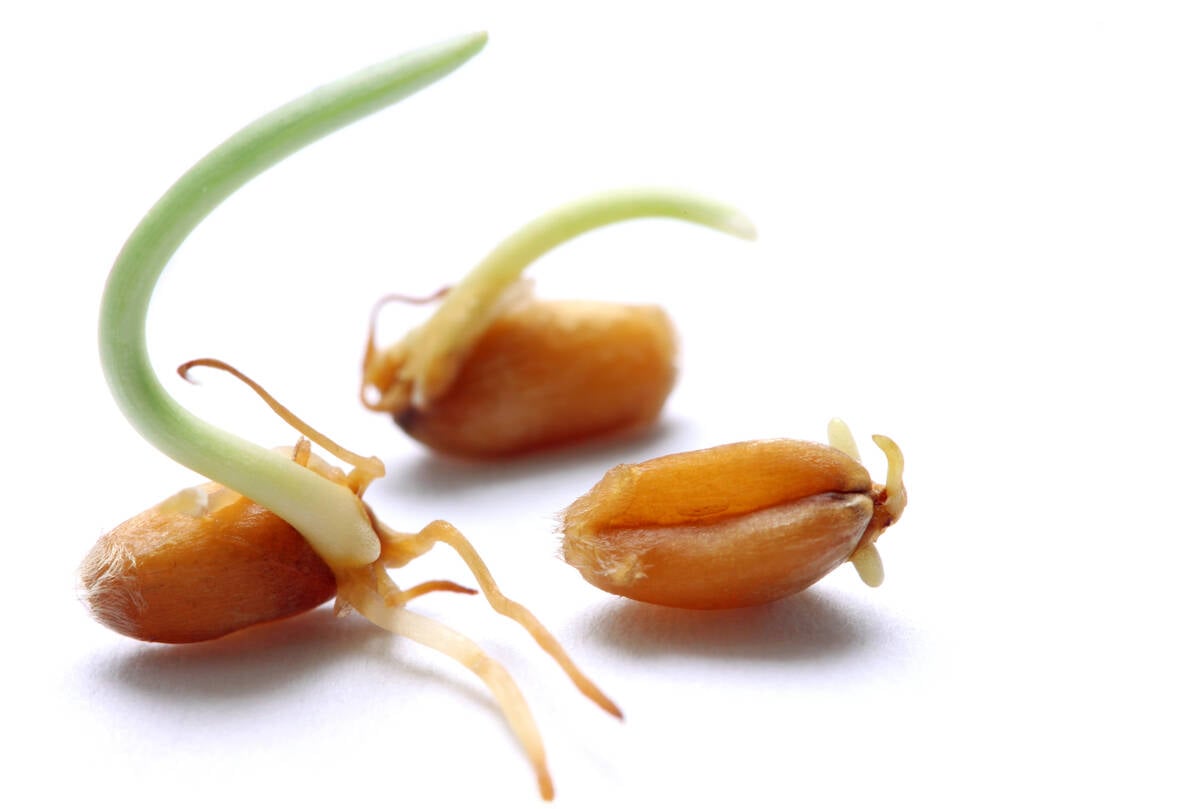Prime-minister-in-waiting Paul Martin is already receiving kudos from western cattle ranchers for his response to the bovine spongiform encephalopathy crisis.
“At least he has had the decency to come out and meet with the cattle producers. We never even once heard from Chrétien. He just kind of stayed off the trail,” said Blair Vold, one of the featured speakers at the recent Western Canadian Forage and Grazing Conference.
Vold, an Alberta auction mart owner and co-chair of the Canadian Cattle Identification Agency, said Martin is a common-sense businessperson who will convince the Americans to reopen the border to Canadian live cattle exports.
Read Also

Manitoba farmers fight sprouted wheat after rain
Rain in mid-September has led to wheat sprouting problems in some Manitoba farm fields.
Shipments to the United States have been disrupted since the May 20 discovery of an Alberta cow infected with BSE.
“I think he’s got a lot more respect across the line than Chrétien does and that can go a long way with your neighbour,” said Vold. “It will be like two friends getting back together that have had a quarrel.”
Martin will be sworn in as Canada’s 21st prime minister at a Dec. 12 ceremony at Rideau Hall in Ottawa. Vold expects the U.S. border will be reopened shortly after that.
“I think we can see a speedy border opening, no later than by the end of February.”
Martin already appears to be smoothing things over with the Americans. Agriculture Canada recently announced it will likely allow year-round imports of U.S. feeder cattle by the end of 2003.
Imports are currently restricted to six months of the year due to concerns surrounding bluetongue disease and anaplasmosis. Vold said the diseases pose no risk to human health and the ban should be lifted as a gesture of goodwill.
He credits Martin with urging Agriculture Canada to do something about the bluetongue issue, which has been a thorn in the side of the American cattle industry.
“We need to get that off the table. We need to start with a clean slate both ways,” said Vold.
Another speaker at the conference talked about forging a relationship of a different sort. Saskatchewan Cattle Feeders Association president Bob Ivey warned producers he was about to utter some dirty words.
“We have to get closer links with government,” he said.
The long-standing philosophy of cattle people has been to go it alone without government interference. BSE brought an end to that self-imposed isolation.
“We were dependent on government this summer, no doubt about it,” said Ivey.
“They came through for us, but I realized it took a lot of education.”
He said too much time and effort was spent making politicians and bureaucrats familiar with cattle issues this summer.
“That’s our fault because we’ve always said ‘bugger off.’ “
Ivey said BSE ushered in a new era for the cattle industry, one in which provincial and federal governments need to be kept abreast of cattle concerns.
For instance, officials need to know how crop insurance programs act as an impediment to the expansion of the cattle industry.
He estimates government crop insurance payments average $8 per acre per year. That money encourages farmers to keep their land in crops rather than seeding it to grass and starting a livestock business.
Ivey said the days of ignoring government are long gone but that doesn’t mean travelling to Ottawa with hat in hand every time something goes wrong. The focus of talks will be on preventing governments from adopting policies that hinder the growth of the livestock sector.
“It’s up to us to get involved with them and tell them what is needed so they’re not off shooting in the wrong direction.”















